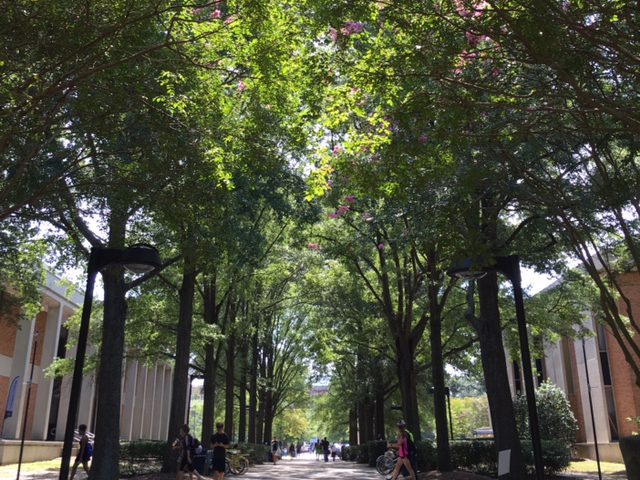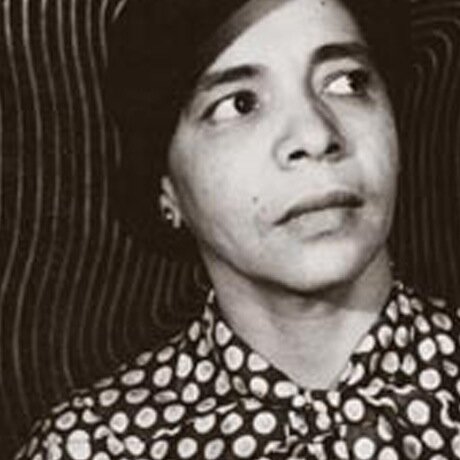Identity in “A View of the Woods”
A View of the Woods by Flannery O’Connor is a short story during the 1950’s. This short story deals vastly with the theme, identity. Mary Fortune Pitts is the granddaughter to Mr. Fortune and the daughter to Mr. Pitts. Mr. Fortune and Mr. Pitts do not get along whatsoever, constantly antagonizing each other and in many ways putting Mary in the middle of their feud. Mary is close with her grandfather, but also loves her father even though her father beats her. Mr. Fortune sees himself in her due to her appearance and intellect however, he resents the fact that … Continue reading Identity in “A View of the Woods”
Lorine Niedecker
I find that Niedecker likes to use images to communicate unique thought. These images are so ordinary yet the messages in her poems are so profound. She is able to connect different smaller images to create a bigger picture for example in her poem ” Seven Years a Charming Woman” she uses the image of a simple coat which I think is a metaphor of her life. She mentions that the coat is not warm but has honor. When something has honor, it means it is respectable and distinguished. This coat must be expensive and stylish but it doesn’t keep her warm during the … Continue reading Lorine Niedecker
Response to Eurydice by H.D.
My first takeaway from Hilda Doolittle’s poem Eurydice is that the wording can be seen as very contrasted. If one takes a step away from the poem’s story and structure, there is a very interesting shift in tone driven by certain words. Flowers, presence, earth, spirits, golden, peace, splendour, colour. These words are prevalent and abundant in Eurydice, and carry lighthearted and upbeat connotations. If, before reading the poem itself, someone abstractly saw those words at a glance, they would most likely infer this poem to contain mostly happy tone. But look more closely. Fire, lost, black, death, hell, ruthlessness, … Continue reading Response to Eurydice by H.D.
Flannery O’Conner Blog Post 2
In Flannery O’Conner’s A View of the Woods, the themes of identity and dominance are presented through inner family conflicts. The story starts with an old man and a young girl, that you later learn is his granddaughter, sitting on a truck watching as a machine tears apart land. The girl, Mary Fortune, is only nine, while her grandfather is 79. The old man, Mr. Fortune, owns some land, which he let his daughter and husband use to farm on it. The daughter and husband, or the Pitt’s, work on the land, but Mr. Fortune owns it. He shows that … Continue reading Flannery O’Conner Blog Post 2
Critical Response: William Carlos Williams
The Red Wheelbarrow by American modernist poet and physician William Carlos Williams is something else. I have read this poem for another class and I really did not like it. I read the poem without really investigating its meaning. and I just thought it was silly. In our class after discussing its meaning and the situation and scene he was viewing when he wrote it, I have a better understanding and liking for the poem. The poem is very simple but it says a lot. He says (“rain / water”) and that symbolizes nature. And the wheelbarrow represents industry and mans … Continue reading Critical Response: William Carlos Williams
Lorine Niedecker
Their apples fall down And rot on the ground— They don’t spray their trees, Trees need care, You can tell they’re no good That live there Apples are high— That shows they’re scarce, Still, the stories always seem to have plenty. Can’t get a price The farmer’s say Shatara D. Oliver Professor Konkol American Drama 340 26 October 2016 Lorine Niedecker The author starts by stating how the apples that become rotten are due to the tree that was not taking care of properly. With the apples and trees not being taken care of they are all useless. … Continue reading Lorine Niedecker
Critical Response 2: Lorine Niedecker
“Seven years a charming woman wore Her coat, removed the collar where it tore, Little warmth but honor in her loose thin coat, without knowing why she’s so. Charming? Well, she’s destitute” (Niedecker, 111) Lorine Niedecker was a poet that lived in Wisconsin, secluded from other writers. Niedecker’s seclusion had a noticeable impact on her tone within her poetry. In the above poem, there is a clear narrator that is not the subject; Niedecker’s choice to use a third person narration of the woman separates the reader from the subject. The reader is not allowed to know the subject’s … Continue reading Critical Response 2: Lorine Niedecker
Orpheus vs. Prufroch
Though different in era, context, genre, and basically everything else, I still believe Orpheus and J. Alfred Prufrock to have a strikingly similar foundational basis for their views of women. Taking a look at either work, one can examine their actions and find an implicit formula for how they will react and treat the opposite sex. Orpheus is the more sympathetic character, but deceivingly so. The story begins with the wedding of him and Eurydice, and after Eurydice’s death, Orpheus is stricken with grief. One might sympathize Orpheus, but his actions later in the myth are what reveal his … Continue reading Orpheus vs. Prufroch
My take on Olsen
Charles Olsen is a magician with words and I am an avid reader of his works, along with the similar poets Ezra Pound and William Carlos Williams who also were believers in the idea of Projective Verse. He mixes his teachings with entertainment which is far more fun to read rather than a “how-to” or “what is a projective essay?” he is far better with words. Olsen claims that poetry is a voice and though usually far more sophisticated than we usually speak with one on another, it is still a voice; to get a point across, to teach a … Continue reading My take on Olsen
Response to Olson’s Projective Verse.
Reflection on Projective Verse. Whilst reading Charles Olson’s essay on poetic theory: Projective Verse, I found myself being drawn to his idea of energy being transferred between the poet, poem and reader. He states that poets lose all energy within their poems when they use traditional forms and syntax. It is implied that these poets constrict themselves to the rules of the poetry and so cannot transfer energy through their poetry. Olsen, with Creeley (another poet), developed a new type of poetry he liked to call “projective verse” which rejected traditional poetic forms and used a more freely constructed verse; in … Continue reading Response to Olson’s Projective Verse.

Strivings of the Negro People
Reflection: Strivings of the Negro People Du Bois’ 1897 essay for The Atlantic is a work of reflection upon his early life which proceeds into 1897, yet is relevant in our 21st Century. His succinct use of English to flesh out the psychological burdens he saw within his black struggle for equal rights interests me (as a white man). His frankness in self-expression as “being a problem,” is in full bloom as he recollects when he was but “a little thing, away up in the hills of New England,” and his offer of a gift to “one girl, … Continue reading Strivings of the Negro People
The ‘N’ Word: Critical Response to “The Name Negro” by W.E.B. Dubois
When I started reading “The Name Negro,” I agreed completely with Roland and how outraged he was by the term “Negro” and anything that had to do with it. However, later into the reading, I decided to steer my judgment in a different direction. That is until I kept reading, noticing DuBois trying to desensitize the word in a sense, and became torn between the two. For the majority of my childhood, I attended schools and lived in neighborhoods that didn’t address issues pertaining to my race, so I didn’t understand the outrage of any words relating to the color … Continue reading The ‘N’ Word: Critical Response to “The Name Negro” by W.E.B. Dubois





